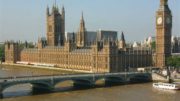Whilst undertaking some research into the African nation of Ghana recently I came across an interesting fact and one that should be taken on board by Britain and in particularly Britain’s National Health Service. This fact is that unlike the British NHS, health tourism in Ghana appears to be less of a problem than it is in Britain. Why could this be you may wonder? After all Ghana, despite being afflicted by many of the problems both economic and social that have afflicted other African nations, Ghana has managed to put in place a universal health care system. This healthcare system must, like many other similar systems, surely attracts those who are not entitled to use it but who attempt to parasite off of it. However, the Ghana health service does one thing that the British NHS does not do and that is they do their utmost to restrict access to the health service to Ghanaian nationals only.
Ghana’s healthcare system relies on all those enrolled in it paying approximately US$10 per year and uptake of it and the nominal fee insurance system is slowly trickling down the socio-economic groups from the high and middle earners to the much less higher paid. There are still cases where the really dirt poor cannot afford the annual fee, but the situation is far better healthcare wise than in some African nations.
I believe that part of the reason that the Ghanaian system is improving relative to other nations and is now in a position to train their own medical staff rather than relying on imported temporary medics, is because it reserves its services to Ghanaian nationals. The Ghanaian Government must understand that providing healthcare either free at the point of use to its citizens is expensive and that money given to the healthcare system from Ghanaian funds, must be kept for the benefit of Ghanaian system.
Not for the Ghanaians having to sit by and see their healthcare services abused by those with no entitlement to them and, as is the case in the United Kingdom, having their own citizens being put in second and even third place for healthcare because of the impact of health tourism. Unlike the UK, Ghana’s healthcare system does not seem to be dominated by shrieking Leftists who demand that Britain’s National Health Service become an International Health Service, paid for by British taxpayers. I can’t imagine that Ghanaian doctors would, as the British Medical Association has done, whine about the effect of NHS policies of recovering funds from health tourists misusing NHS services and from others who may not have proper entitlement to use the NHS.
Ghana is, despite doing relatively well in comparison with other African nations, not in a position to treat every African who shows up at one of their hospitals. Ghana has to make sure that every penny spent on healthcare goes to the Ghanaians who are entitled to it. Maybe it is time for Britain’s NHS to undertake a similar policy to that employed by the Ghanaian healthcare system to reduce the increasing burden of health tourism.





